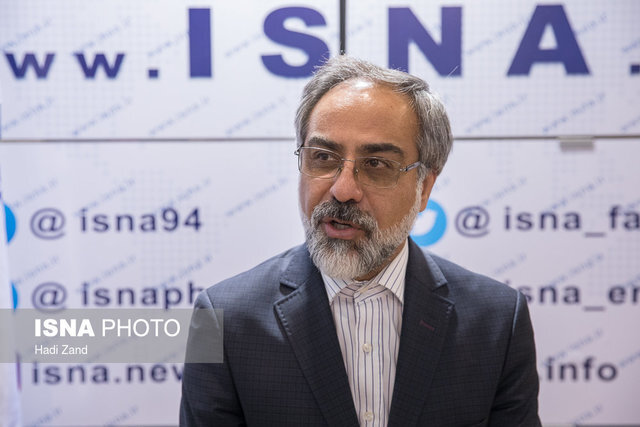Iran’s second step in reducing nuclear commitments does not mean quitting JCPOA: MP

TEHRAN - Deputy Chairman of the Parliament’s National Security and Foreign Policy Committee Kamal Dehghani has said that Iran’s second step in reducing its commitments under the 2015 nuclear deal, the Joint Comprehensive Plan of Action, does not mean quitting the agreement.
Iran’s first step was to remove ban on its stockpile of nuclear fuel. Under the agreement Iran was permitted to keep 300 kilograms of uranium.
“The international community is well aware that the Islamic Republic of Iran has abided by its commitments so far, an issue which has been confirmed by the International Atomic Energy Agency. So, according to international law, Iran has fulfilled its obligations and it is other sides’ turn to fulfil their commitments,” he told ISNA in an interview published on Sunday.
He noted that Iran’s national interests are not being met since the U.S. withdrew from the JCPOA in May 2018 and introduced sanctions on Tehran.
“(Majlis) representatives and the people support the government’s power and its decision to take the second step which is in line with meeting the people’s interests and preventing harms,” Dehqani stated.
He added that Iran’s action is within the framework of the JCPOA.
Iran officially announced on Sunday the start of enriching uranium higher than the current 3.67%, as the remaining JCPOA parties, including Europeans, failed to protect Iran from U.S. sanctions within a 60-day limit.
The announcement was made in a joint press conference by Deputy Foreign Minister Abbas Araqchi, government spokesman Ali Rabiei, and Atomic Energy Organization spokesman Behrouz Kamalvandi.
Under the nuclear deal, Iran had agreed to put limits on parts of its nuclear program in exchange for the termination of all economic and financial sanctions.
In an email interview with The New York Times published on Thursday, Foreign Minister Mohammad Javad Zarif said, “We will remain committed to the deal as long as the remaining participants (EU, France, Germany, UK, Russia and China) observe the deal.”
He said, “Survival or collapse of the JCPOA depends on the ability and willingness of all parties to invest in this undertaking. In a nutshell, a multilateral agreement cannot be implemented unilaterally.”
On May 8, Iran announced a partial withdrawal from some aspects of the nuclear pact, saying that the country would no longer adhere to some of the limits on its nuclear activities as long as sanctions are in place. It also threatened to step up uranium enrichment if an agreement is not made within 60 days to protect it from the sanctions’ effects.
U.S. President Donald Trump withdrew Washington from the nuclear deal in May 2018 and ordered sanctions on Tehran. Trump has even introduced full ban on Iran’s oil export, a move which has been described as an economic war against Tehran.
So far the European Union has not taken a major step to offset U.S. sanctions against Iran. The European special purpose vehicle (INSTEX), which has been devised for trade with Iran, has been described as a “beautiful car without petrol” by Tehran’s Ambassador to the UN Majid Takht-Ravanchi.
NA/PA
